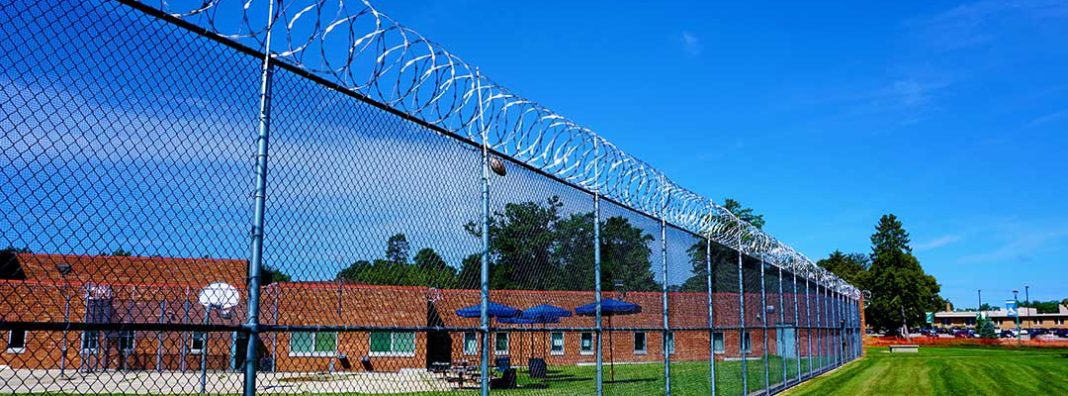
Covid-19 has restricted access to the criminal justice system and we must prepare for a second wave of instability brought on by a system that is overwhelmed and lacks resources. Hon. Kevin Allen (Ret.) and Lucas Rentschler, both of the Center for Growth and Opportunity at Utah State University, suggest solutions like decriminalizing certain crimes, monitoring with technology, and using specialty courts.
During the Covid-19 crisis, courts all across the country have severely restricted access to the criminal justice system. As a result, an already inefficient and painfully slow process has ground to a near halt and only the most severe cases are heard, and even then, many of those are postponed until social distancing requirements begin to ease.
We have an already backlogged system that is becoming even more pent up, and the pressure continues to build. For example, in California, some courts are wholly closed, and most courts are not set to open until this summer. As states start to reopen, tension is going to crest, and when it does, it will come crashing down on a criminal justice system that will have fewer resources to deal with the tsunami of cases that will follow.
The nonpartisan Center on Budget and Policy Priorities recently released a study that shows that the collective budget shortfalls of states could reach as high as $500 billion. This second wave has the potential to have far broader impacts than any resurgence of Covid-19.
At the moment, we need to keep our attention focused on the immediate dangers of the now shrinking pandemic. However, we must prepare for the second wave of instability brought on by a system that is overwhelmed with criminal cases without the resources needed to deal with them. Doing nothing can only result in the spilling out of unresolved criminal cases, unsupervised probationers, and untreated offenders into our communities.
Evidence-Based Solutions Can Work
Fortunately, we have the tools to deal with this oncoming surge. And although there are many uncertainties surrounding Covid-19, we have promising, evidence-based solutions that are waiting to be implemented in the criminal justice system. And they work.
It costs an average of $2,600 a month to keep someone in jail. Unfortunately, little effort has been made to weigh these costs against the benefits to society. We spend billions of dollars a year incarcerating people for non-violent offenses. In many cases, these expenditures do not appreciably improve public safety.
Efforts to decriminalize non-violent offenses have been relatively scarce, so reliable data is hard to come by. However, a clear example has been the legalization of recreational marijuana use in several states. There has been no associated increase in crime, and some research suggests crime has declined.
Beyond the substantial costs imposed on the incarcerated, overcriminalization costs taxpayers billions of dollars we simply cannot afford. According to the FBI, only 15% of all crimes are violent. The remaining 85% are either property crimes or drug-related. Yet, the U.S. continues to have the highest incarceration rate in the world.
Increasing Parole, GPS Monitoring, Using Video
We need to take another look at how we classify the most severe crimes. The mere possession of drugs, low-value property crimes, and public order offenses make up a significant portion of our jail and prison populations, and evidence shows, throwing them into jail only increases the criminality of the person in jail.
In addition, other cost-saving measures can be easily adopted without sacrificing public safety. Increasing the use of parole or probation while utilizing low-cost technology-based alternatives to incarceration can save money.
Smart-phones combined with GPS monitoring, sensors that continuously read alcohol consumption, video visitation and check-ins, and other technologies can meet the goal of punishing criminal behavior while allowing for more effective rehabilitation – but at a substantially lower cost than incarceration.
Specialty Courts
Another avenue for quickly reducing costs while improving criminal justice outcomes is increasing the funding and utilization of specialty courts. There are well-established specialty courts associated with drug addiction, mental health, domestic violence, veterans, and DUI’s that have proven less costly and much more useful than incarceration.
Research demonstrates that the outcomes associated with these courts are substantially cheaper, and recidivism is lower. The utilization of these courts and related treatments is constrained by budgetary caps imposed by state and municipal lawmakers. These lawmakers could reduce state costs and improve offender outcomes by allocating more funding to these courts, and less to traditional prisons and jails.
Our criminal justice system has many problems, many of which will be exacerbated by the coming budget crisis. However, this crisis may provide the political and social will to implement desperately needed reforms.
These simple changes will provide a better framework to create real reform—both for our criminal justice system and to those who find themselves in it.


 Bloomberg Law
Bloomberg Law